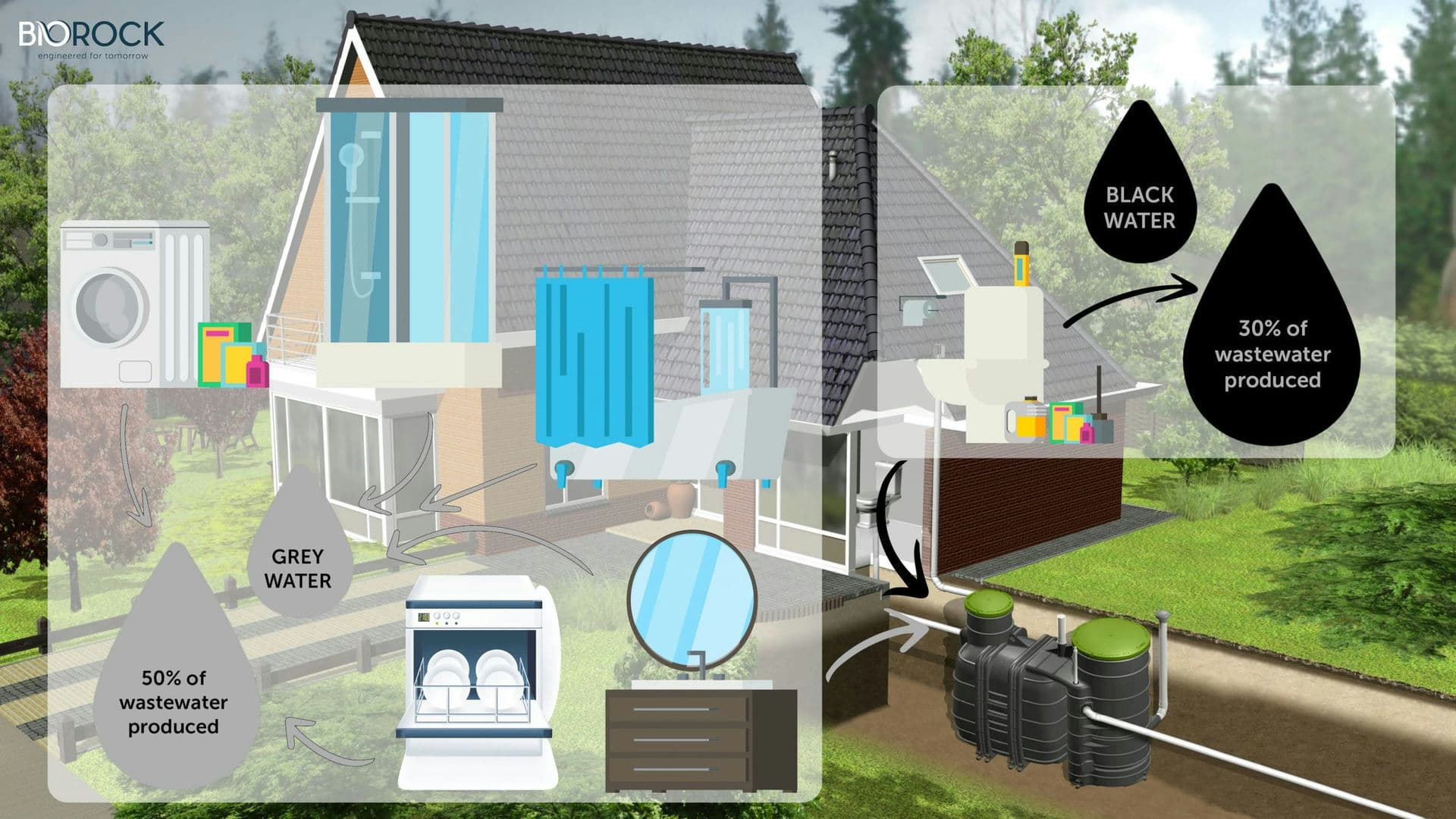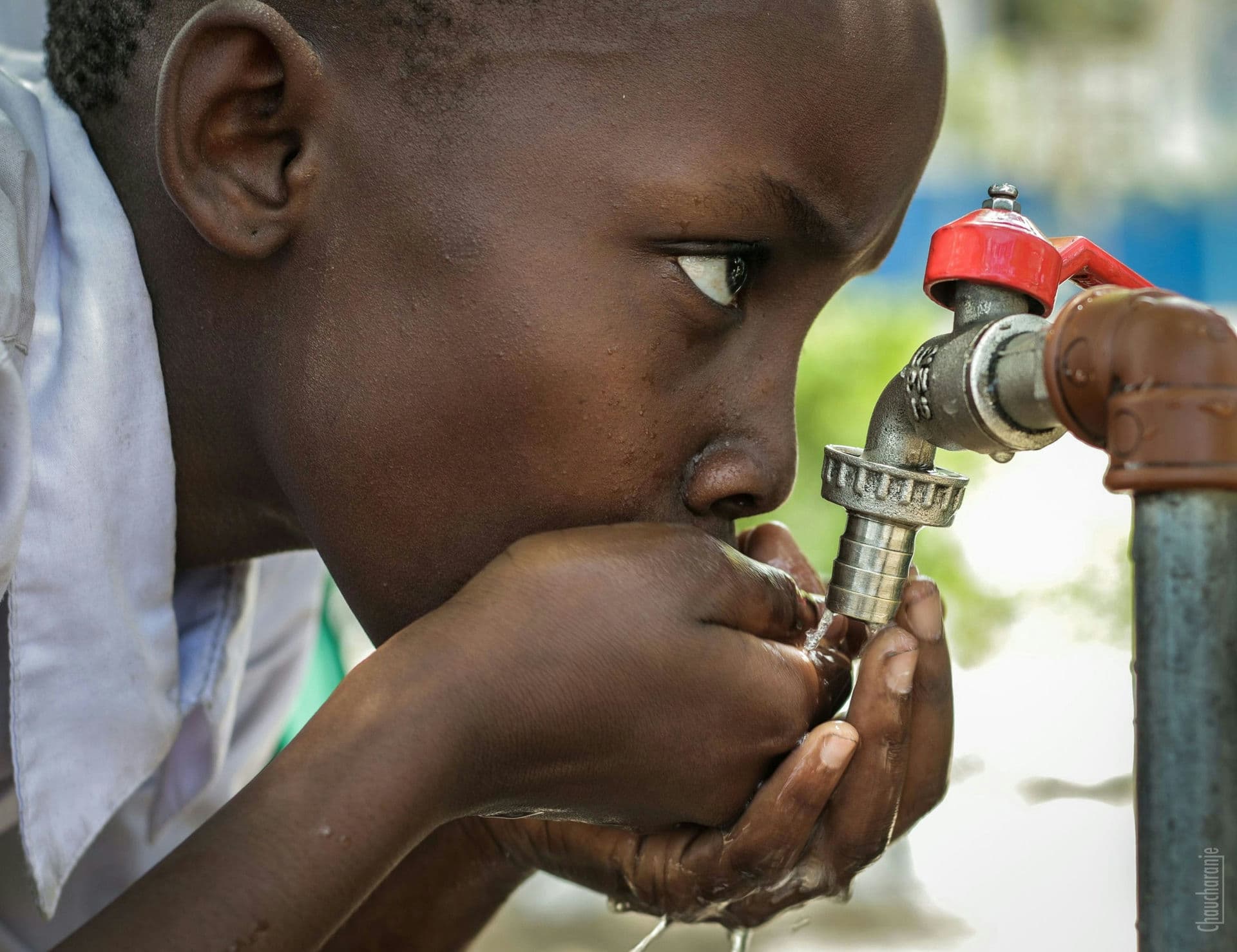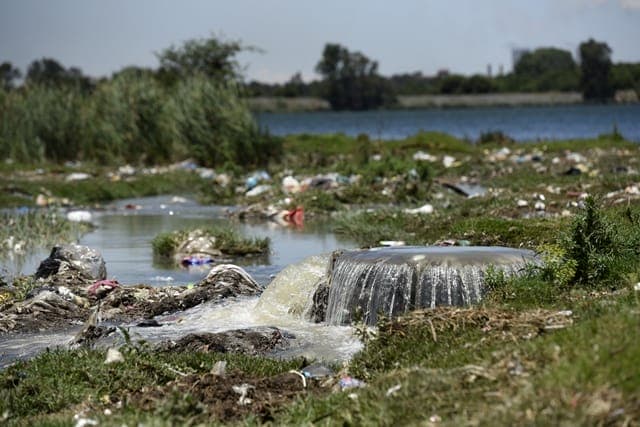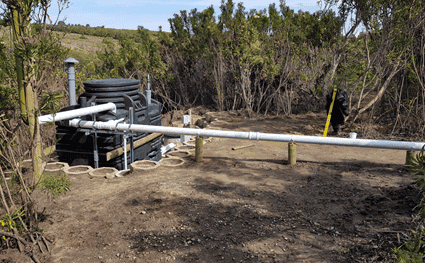Did you know that in Africa, untreated blackwater is a major issue? If not treated enough, blackwater can be fatal. In this article, we will discuss what blackwater is and how it affects persons who are exposed to it. We will also discuss methods for treating and recycling blackwater.
Indeed, Blackwater is water that has been contaminated with human excrement. This waste can be anything from feces and urine, as well as food scraps and dirty water.
Black wastewater or "Blackwater" comes from sewage. Sewage ranges from feces and urine to food waste and other dirty water. Blackwater is harmful because it contains a high number of pollutants that have been proven to cause health problems when exposed for long periods. In many cases in Africa, diseases caused by pollutants in the water have resulted in death if not treated quickly enough with proper methods such as sewage treatment plants. Did you know that you can use this system to recycle blackwater into something useful like water for irrigation systems on farms? We will discuss this in more detail later, but first, it makes sense to explain the difference between blackwater and greywater to avoid confusion.
Grey wastewater or "Greywater" is any type of household liquid that has not come into contact with fecal matter. This includes things like dishwashing detergent, soap, shampoo, etc... Greywater makes up around 50% of all wastewater produced in developed countries today, whereas blackwater accounts for only 30%. The remaining 20% are industrial effluents that contain more contaminants than either grey or blackwater sources. The reason why it is called grey instead of black is that it doesn't contain any organic material that would cause it to turn black.

 The problem with blackwater in African countries is that people are not properly disposing of blackwater into sewage treatment plants. In many cases, rivers have been utilized to dispose of blackwater which leads to a huge contamination risk for those who consume the polluted river water. If a person drinks enough contaminated grey or blackwater over a long period, they risk contracting diseases like cholera and typhoid fever, which are caused by harmful bacteria found within raw sewage containing high levels of pathogenic organisms. The most common form of infection results through ingestion - drinking blackwater that has been contaminating the rivers and water supplies of African countries.
The problem with blackwater in African countries is that people are not properly disposing of blackwater into sewage treatment plants. In many cases, rivers have been utilized to dispose of blackwater which leads to a huge contamination risk for those who consume the polluted river water. If a person drinks enough contaminated grey or blackwater over a long period, they risk contracting diseases like cholera and typhoid fever, which are caused by harmful bacteria found within raw sewage containing high levels of pathogenic organisms. The most common form of infection results through ingestion - drinking blackwater that has been contaminating the rivers and water supplies of African countries.
 The Vaal River in South Africa is a perfect example of the dangers blackwater can cause. The river has been contaminated over many years by untreated blackwater that flows from various factories and towns along its banks. Not only does this blackwater contain harmful pollutants that are dangerous to humans, but it also supports very little life due to the high levels of toxicity. This, in turn, has a negative effect on the environment and the economy. According to the Environmental Affairs Department, a multistakeholder approach is required to address the pollution of the Vaal River. The department's comments follow an aspect of the South African Human Rights Commission's second leg investigation into claims that raw sewage is polluting it. The cleanup began in September 2018 after a site inspection revealed significant pollution. It's estimated that 150-million litres of sewage are flowing into the river every day. At least 3-million people rely on the Vaal River for drinking water. Residents of Midvaal and Emfuleni municipalities have long complained about sewage flowing into their streets and homes. The solution for people who rely on this river to avoid getting sick is to treat the water at home and make sure it is fully filtered and purified. This means harvesting their own rainwater and recycling their grey and black water. Municipalities are not keeping up with the load that needs to be treated, that's obvious. Thus how to reduce the water load? By recycling it, people will be able to save money and water at the same time. They can also use reclaimed rainwater instead of municipal water. After all, there's nothing wrong with being prepared and saving money and water, right?
The Vaal River in South Africa is a perfect example of the dangers blackwater can cause. The river has been contaminated over many years by untreated blackwater that flows from various factories and towns along its banks. Not only does this blackwater contain harmful pollutants that are dangerous to humans, but it also supports very little life due to the high levels of toxicity. This, in turn, has a negative effect on the environment and the economy. According to the Environmental Affairs Department, a multistakeholder approach is required to address the pollution of the Vaal River. The department's comments follow an aspect of the South African Human Rights Commission's second leg investigation into claims that raw sewage is polluting it. The cleanup began in September 2018 after a site inspection revealed significant pollution. It's estimated that 150-million litres of sewage are flowing into the river every day. At least 3-million people rely on the Vaal River for drinking water. Residents of Midvaal and Emfuleni municipalities have long complained about sewage flowing into their streets and homes. The solution for people who rely on this river to avoid getting sick is to treat the water at home and make sure it is fully filtered and purified. This means harvesting their own rainwater and recycling their grey and black water. Municipalities are not keeping up with the load that needs to be treated, that's obvious. Thus how to reduce the water load? By recycling it, people will be able to save money and water at the same time. They can also use reclaimed rainwater instead of municipal water. After all, there's nothing wrong with being prepared and saving money and water, right?
Treating blackwater/sewage means finding ways to remove pollutants found within raw sewage without having too much impact on society or our environment.
One way to treat this blackwater is by using treatment plants that remove a large number of contaminants from blackwater to make it safe for reuse.
Sustainable treatment plants such as BIOROCK non-electric treatment plants allow blackwater/sewage to become a resource rather than a hazardous pollutant by removing harmful pathogens and concentrating nutrients to turn it back into greywater that is safe for recycling on farms as irrigation. For example, our partners in Africa installed an ECOROCK system in an organic farm in Stonehaven, Western Cape and the project has been successfully completed. They can now re-use every litre of potable water that is used on the farm. The plant is visually unobtrusive and has no smell. This is why they chose BIOROCK instead of another solution. This treatment plant is capable of removing most of the blackwater pollutants while also recycling the clean greywater into a reusable resource that is safe for irrigation.
Another option for treating blackwater is through the use of renewable energy sources such as solar power which can help treat blackwater and convert it into reusable greywater. This method requires more land than treatment plants, but it is also a cost-effective, sustainable, and long-term solution for recycling blackwater.
There are several things you can do to prevent the spread of diseases by water contamination in African countries. The most effective method is to properly dispose of blackwater into sewage treatment plants instead of rivers or other bodies of water. This will help to reduce the levels of contamination found within these waterways. Fortunately, BIOROCK solutions work without electricity and can be installed above ground, these are the most suitable solutions for water treatment in rural areas where access to electricity is difficult. The good news is that if a water treatment system is already present, simply adding the ECOROCK treatment unit behind the septic tank will drastically improve the quality of the effluent. It is one of the best solutions to repair failing systems in a country where more than half of the sewage systems are actually failing. If you don't already have an installation, don't worry about it. BIOROCK solutions have been designed to be quick and easy to install! It is important to spread the word about BIOROCK solutions because they are the best solutions for treating and reusing water. Think about it, this could save the future of Africa from water scarcity.
Another way to help prevent the rivers from being contaminated even more is by using greywater irrigation systems on your farm. This will help recycle blackwater and use it as a fertilizer which will improve soil health and decrease soil erosion rates.

BIOROCK solution in Stonehaven farm, South Africa
Recycling blackwater into irrigation systems on farms is a very common practice in Japan, one of the most polluted areas within Asia. This results in reduced input costs as well as high agricultural yields due to recycled blackwater fertilization practices. The use of treated blackwater can decrease soil loss caused by erosion as well as improve ventilation because it reduces evaporation rates when stored for extended periods.
You can also support organizations that are working on blackwater treatment and recycling technologies such as the Water Institute of South Africa, a non-profit organization that collaborates with engineers, scientists, and other individuals who are working on wastewater issues.
To conclude, sewage or blackwater contains high levels of harmful pollutants that have been proven to cause health problems when exposed long term and have caused death in African countries where the rivers are contaminated. Blackwater contamination leads to increased rates of soil loss due to runoff as well as decreased ventilation from reduced evaporation rates when stored for long periods. One solution to this problem? BIOROCK, an eco-friendly blackwater treatment system that uses microbes to treat wastewater and sewage. In addition to being environmentally friendly, it also has many additional benefits such as saving money on fuel costs and chemicals because there’s no need for chlorination or disinfection. It’s time we all start treating our planet better by implementing solutions like these in Africa and beyond! We should embrace more sustainable solutions. The behaviours in the way we manage wastewater need to change and the introduction of wastewater treatment plants would be a great start. These sustainable solutions that require no electricity, low maintenance, and produce a high-quality effluent can treat blackwater and convert it into reusable greywater that may be used on farms instead of polluting African rivers with untreated sewage.
Discover all the eco-friendly solutions available to treat blackwater in South Africa: BIOROCK Africa